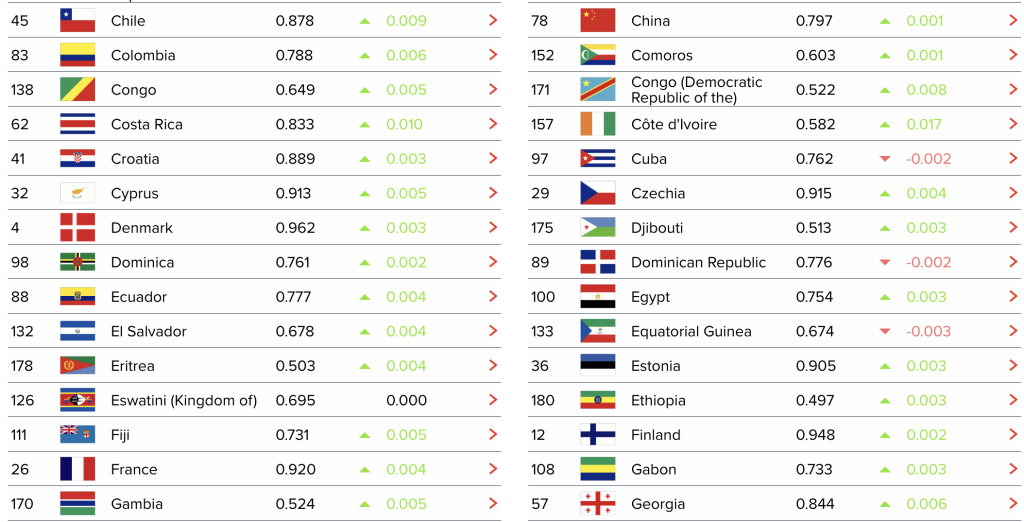
The 2025 Human Development Report for the Dominican Republic ranks the Dominican Republic 89th out of 193 countries. This is the same ranked reported for the DR in the 2021 and 2023 United Nations Human Development Reports.
The 2025 report highlights that the Human Development Index (HDI) has increased 32% since 1990, the year the UNDP began measuring it. This places the country in the category of “high human development.”
The report mentions that from 2010 to 2023, the Dominican Republic achieved a 1.7% annual reduction in inequality, which is faster than the 1% average for the Latin American and Caribbean region. Since 2018, the country has shown less inequality in relation to its HDI compared to the rest of the region.
Despite the positive aggregate figures, inequality continues to be a major obstacle to national development, limiting the full and equal enjoyment of human development for all citizens.
Between 2010 and 2022, the country lost nearly 22% of its human development potential due to territorial inequalities in access to basic services such as health, education, and income generation.
High human development is concentrated exclusively in the Ozama region (Distrito Nacional and Santo Domingo). Other regions show mixed results, ranging from medium-high to medium-low or low development levels. The most lagging provinces are those on the border, as well as the Yuma region (El Seibo, La Altagracia, La Romana), which includes the major tourist hub of Punta Cana.
The UNDP provided several recommendations to the Dominican authorities:
• Prioritize sustainability and inclusion: Move beyond solely focusing on GDP growth and translate economic progress into well-being for all people across all territories.
• Strengthen territorial planning: Focus on reducing territorial barriers to accessing social services, decent and protected work, and sustainable income sources.
• Increase investment in health: Boost investment in preventative health and universal access, especially in rural communities and historically excluded populations.
• Improve educational quality: Deepen efforts to improve educational quality with a focus on territorial and gender disparities. This includes addressing differences in learning, school retention, and opportunities for young people, as well as incorporating new technologies.
• Promote progressive fiscal policies: Implement progressive fiscal policies and a universal, adaptive social protection system to redistribute income and reduce vulnerabilities.
Read more:
HDR
N Digital
UNDP
UNDP
15 September 2025

